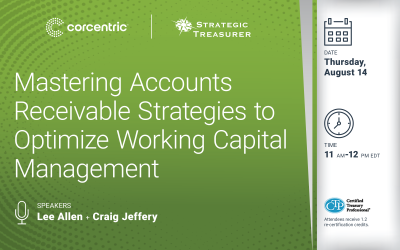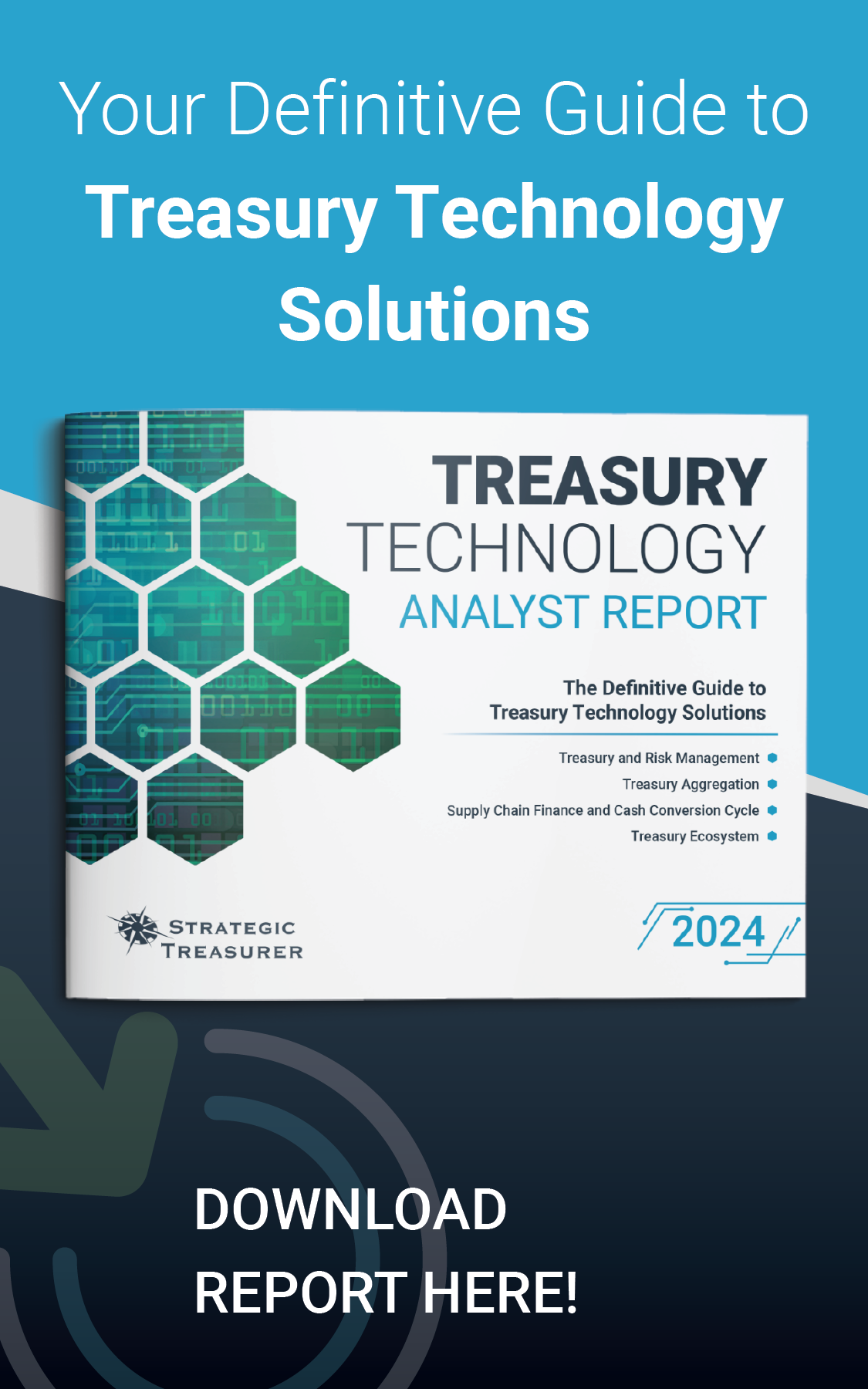How can treasury and supply chain teams respond effectively to the challenges ahead of them?
The New Corporate Cash Environment: Understanding Impacts on Financial Supply Chain & Cash Management
Date: Tuesday, March 20th, 2018
Time: 11:00AM – 12:00PM EST
Where: This is an online event.
This session will set a basis for understanding the impact of payment terms & dynamic discounting and include advice for the setup of the right type of governance. We will also touch on the optimization of corporate cash management through the financial supply chain and why it’s not just about who you pay but the processes and costs of how you pay them.
1.2 CTP re-certification credits will be given for this webinar.
You may also be interested in:
Webinar: Mastering Accounts Receivable Strategies to Optimize Working Capital Management | August 14
Discover how effective accounts receivable (AR) practices can drive working capital optimization. This webinar explores various strategies to improve cash flow, reduce payment latency issues, turn cash over quickly, and strengthen financial control. Learn how AR management can support broader organizational goals for efficiency and sustainable growth.
Webinar: The Fed at a Crossroads: Corporate Options | August 13
Explore the Federal Reserve’s current position and potential future moves in this timely webinar. Join Federated Hermes and Strategic Treasurer as we discuss how upcoming Fed decisions could impact money market funds, liquidity investments, and short-term fixed income strategies. This session will provide insights into today’s rate environment, highlight potential shifts when rate cuts occur, and review considerations around extending investments further out on the curve. Treasurers will gain a broader perspective on balancing liquidity needs with yield opportunities amid evolving economic conditions.
Webinar: Savvy Treasury Teams Are Getting AI-Ready. Here’s How. | August 19
In this webinar, we’ll introduce a practical AI readiness checklist designed for forward-thinking treasury teams. You’ll leave with clear steps to evaluate your internal processes, assess your vendor ecosystem, and begin unlocking the value of AI with the data and systems you already have.






